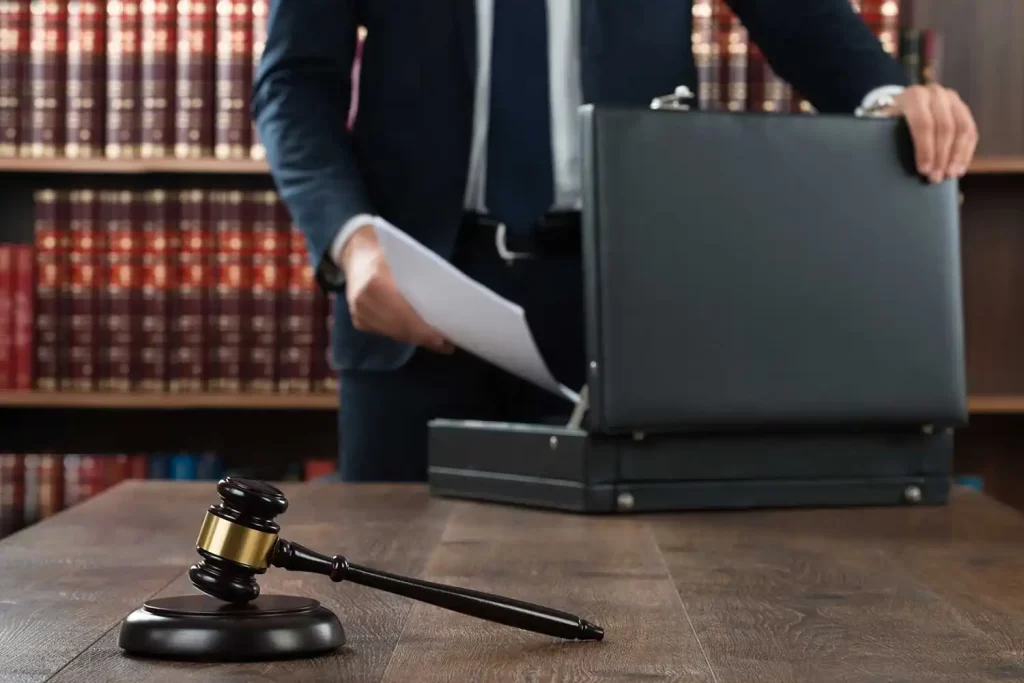We are the constitutional issues and civil rights lawyers who will fight for your rights.
Certain matters of law involve very complex issues relating to a person’s fundamental civil rights or rights guaranteed under the United States Constitution. People who believe their rights have been violated could be entitled to file legal actions in court to seek redress. And, as a Civil Rights Attorney in Dallas we can help you in such matters.
Violations of constitutional or civil rights can be very frightening for some people to pursue because the alleged offenders in some cases may be governmental entities. In such cases, accountability can become even more important for the welfare of the broader general public.
Do you think that your constitutional or civil rights were recently violated in Dallas or a surrounding area of Texas? You should not be afraid to contact a civil rights attorney in Dallas to discuss the specifics of your case and get help understanding what options you might have.
Winocour Law can make sure that bad actors are held accountable and you can get some measure of justice. Call (214) 575-6060 or contact us online to schedule a free consultation with our constitutional issues lawyers in Dallas.

Do I Need A Constitutional Issues and Civil Rights Attorney?
When you think that your civil or constitutional rights have been violated, you will quickly find that it can be very complicated trying to handle your own case. You will usually be required to file a claim with another entity before you can file a lawsuit.
Specific deadlines can also apply in many of these cases. It can quickly become very confusing for the average person to try and satisfy all of these various demands.
Your attorney will take the stress of your claim off of your shoulders when you hire them. One of the first things a lawyer can do is conduct an independent investigation of your incident to obtain all of the relevant evidence and identify all liable parties.
Some cases can take much longer to resolve than others. A civil rights attorney will also be able to provide you with a more accurate timetable of a possible resolution to your case.
Why Choose Winocour Law To Handle My Case?
Winocour Law is not afraid to step in and let government entities know when they have misinterpreted or violated the law. Our firm will aggressively stand up to fight to protect your rights.

Jonathan Winocour, Founder and Principal Attorney
Jonathan Winocour is a member of the Texas Trial Lawyers Association, American Bar Association, and American Association for Justice who has been included in the Top 100 of the National Trial Lawyers Association. He is a published contributor to Texas Lawyer magazine who secured a $5 million settlement approved by the court in Oliver, et al. v. Aegis Communications Group, Inc. and won a $1 million verdict in Meletio, et al. v. Myre, et al.
Mike Miller, Of Counsel
Mike Miller is Board Certified by the Texas Board of Legal Specialization in Personal Injury Trial Law and is a member of the Texas Trial Lawyers Association, State Bar of Texas, and American Board of Trial Advocates. He earned his Juris Doctor from the University of Texas School of Law after obtaining both a Bachelor of Arts and Bachelor of Science from Southern Methodist University.

We pride ourselves on maintaining very close working relationships with all of our clients so you will always feel as though you have been fully informed about your case and are always up to date on where everything stands. Winocour Law has experience litigating claims based on statutes in which the constitutionality has been challenged.
Types of Constitutional Issues and Civil Rights Cases We Handle
Winocour Law has experience with claims arising under the United States Bill of Rights such as:
Unlawful Search and Seizure
The Fourth Amendment to the United States Constitution plainly states that the “right of the people to be secure in their persons, houses, papers, and effects, against unreasonable searches and seizures, shall not be violated, and no warrants shall issue, but upon probable cause, supported by oath or affirmation, and particularly describing the place to be searched, and the persons or things to be seized.” Evidence seized through an illegal search or seizure may be suppressed and inadmissible in court.
Free Speech Claims
The First Amendment to the United States Constitution guarantees the right to freedom of speech, and people may have legal claims when another entity is preventing or restricting their ability to speak freely.
Free Exercise Claims
The Free Exercise Clause is involved in the Establishment Clause of the First Amendment to the United States Constitution, specifically, the provision that “Congress shall make no law respecting an establishment of religion or prohibiting the free exercise thereof.” The Free Exercise Clause reserves the right of American citizens to accept any religious belief and engage in religious rituals and promotes a free religious market by precluding taxation of religious activities by minority sects.
Freedom of Association Claims
The freedom of association with others as a group is considered an essential part of both the First and the Fourteenth Amendment to the United States Constitution. Freedom of association claims may arise when governmental entities overstep their bounds in seeking information or when membership information is shared without consent.
Cruel and Unusual Punishment Claims
The Eighth Amendment to the United States Constitution provides that excessive bail cannot be required, excessive fines cannot be imposed, and cruel and unusual punishments cannot be inflicted. In Solem v. Helm, 463 U.S. 277, the Supreme Court of the United States held that “the Eighth Amendment proscribes grossly disproportionate punishments, even when it has not been necessary to rely on the proscription.”
Due Process Claims
Due process relates to multiple amendments. The Fifth Amendment to the United States Constitution provides that no person can be deprived of life, liberty, or property without due process of law, and the first section of the Fourteenth Amendment to the United States Constitution specifically has the Due Process Clause, which provides that no state can make or enforce any law abridging the privileges or immunities of citizens of the United States, deprive any person of life, liberty, or property, without due process of law, or deny to any person within its jurisdiction the equal protection of the laws.
Equal Protection Claims
The Equal Protection Clause refers to the phrase mentioned in the aforementioned Due Process Clause of the Fourteenth Amendment to the United States Constitution. An equal protection case usually concerns a person not being afforded the same rights and protections afforded to other individuals, usually based on their age, race, or some other discriminatory characteristic.
We also handle other civil cases involving such issues as:
Whistleblower/Retaliation claims
Whistleblower laws protect individuals who report criminal activity or other dangerous practices by employers. Retaliation concerns adverse actions by employers or co-workers in response to people taking legally protected actions.
Title VII Claims
Title VII of the Civil Rights Act of 1964 is the federal law prohibiting discrimination based on sex, race, color, national origin, and religion. The United States Equal Employment Opportunity Commission (EEOC) investigates cases involving discrimination under Title VII and can issue a notice that allows you to file a lawsuit when the EEOC cannot resolve the charge itself.
Section 1983 Actions
A Section 1983 claim usually involves a civil action for deprivation of rights under Title 42 United States Code (U.S.C.) § 1983. Section 1983 claims often involve violations of constitutional or civil rights but can also result from instances of excessive police force.
Invasion of Privacy Claims
An invasion of privacy could involve misappropriation, which includes another person using somebody else’s identity. Invasion of privacy could also stem from unlawfully publicizing the actions of a private individual or intrusion into private matters that cause personal damages.
Employment Discrimination and Retaliation
In addition to protections against sex, race, color, national origin, and religion under Title VII, numerous other federal and state laws provide protection against other types of discrimination. For example, a person discriminated against on the basis of a disability could have a claim under the Americans with Disabilities Act (ADA).
Sexual Harassment
Employers cannot allow employees to be subject to any requests for sexual favors, inappropriate physical contact, or other sexual comments that create a hostile work environment. Sexual harassment can involve men or women, and it can be more subtle in some cases while it is more flagrant in others.
Malicious Criminal Prosecution
A malicious prosecution claim will usually involve a person needing to prove that a prosecutor acted in bad faith and prosecuted an offense for some reason other than the pursuit of justice. Malicious prosecution will stem from an alleged offender having been acquitted of the underlying charge and must show there was no probable cause that would have otherwise led to a criminal proceeding.
Other Constitutional Violations and Statutory Claims
If you believe that another right of yours other than something listed here has been violated, you can still contact our firm to discuss the specific laws involved in your case and get help understanding what rights you have.
Frequently Asked Questions (FAQs) About Constitutional Issues and Civil Rights
What is Probable Cause?
Probable cause is the requirement that must be met before a police officer can make an arrest, conduct a search, or receive a warrant, and it is also the standard that needs to be satisfied for a grand jury to issue an indictment. Probable cause is quite simply some kind of facts or evidence that would lead a reasonable person to believe that an alleged offender committed a crime. Evidence of a criminal offense being in plain sight is one example of probable cause, but a minor traffic violation that is the basis for a traffic stop is not in itself probable cause. Keep in mind that law enforcement is required to have a search warrant to search your private property (like your home) but only need probable cause (such as the alleged scent of marijuana) to search your motor vehicle.
When Can a Police Officer Legally Search My Motor Vehicle?
Again, police only need probable cause to search your motor vehicle, and the alleged smell of marijuana is often used to justify most searches. You always have the right under the Fourth Amendment to refuse to consent to any search, and you are not required to explain why you are refusing to consent. Your refusal to consent to a search is not an admission of guilt to a criminal offense, so you should ask when you are free to leave and immediately contact a lawyer when you are being detained.
What is a Qui Tam Action?
Qui tam lawsuits are whistleblower lawsuits brought under the False Claims Act and reward the whistleblowers when the government recovers funds lost to fraud. The False Claims Act allows any private citizen to sue an individual or a business defrauding the government and recover funds on the government’s behalf, but the lawsuit is usually filed “under seal” such that it is confidential to everyone but the government. If you are involved in any qui tam action, you are typically subject to restrictions about what you can and cannot say about the case.
Contact Our Dallas Constitutional Issues and Civil Rights Attorney Today
If you believe that your constitutional or civil rights were violated in the greater area, you could have the right to seek a certain measure of justice. You will want to quickly retain legal counsel so you can fully understand what all of your options might be.
Winocour Law will aggressively fight to protect your rights. Our lawyers can provide an honest and thorough evaluation of your case when you call (214) 575-6060 or contact us online to receive a free consultation.

